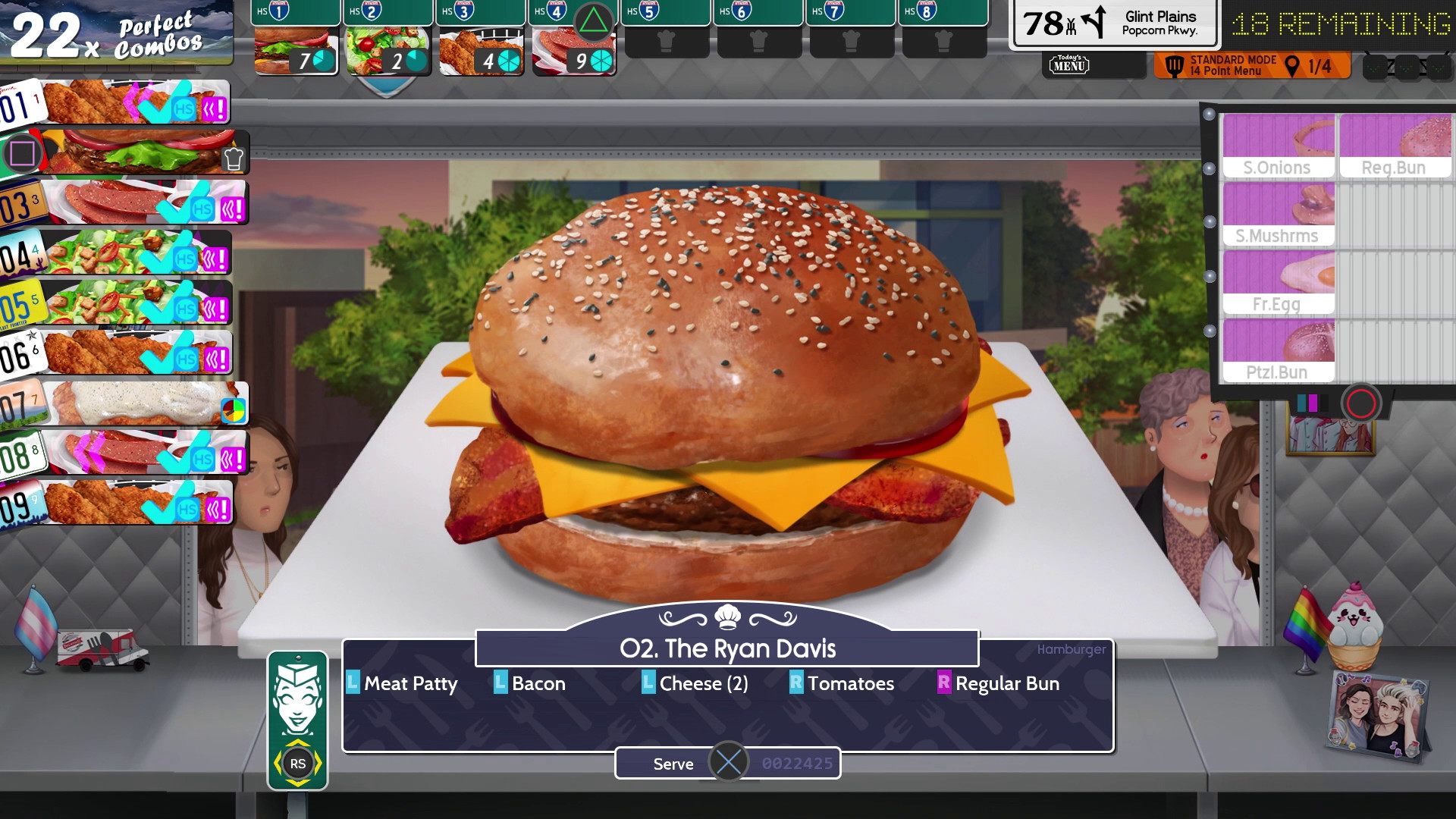
What is it? A cooking simulator that piles on the pressure.
Expect to pay: $20/£15
Developer: Vertigo Gaming Inc
Publisher: Vertigo Gaming Inc
Reviewed on: GTX 970, Intel Core i5-4670k, 8GB RAM
Multiplayer? Yes
Link: Official site
There are some foods that can, frankly, just get in the bin. I’ve lost count of the creative streams of Gordon Ramsay-esque expletives that have issued from my lips when attempting to serve up the perfect plate of eggs benedict. My eggs are poached and ready, but when it comes to assembly time, my brain freezes up under the pressure and, before I know it I’ve dispatched the portion without those fiddly little herbs on top. The recipient is disappointed. It’s a lot like when I try to make the dish in real life, now I think about it.
Unlike in the series’ previous two instalments, which tasked you with building up your dream restaurant, this time you’re out on the road. Your old restaurant has been destroyed in a war that has ravaged the US: the game opens with you being pulled from the wreckage of Teragon Supertower by a pair of eerily helpful robots, who immediately offer up their van for you to transform into a food truck and stage your great comeback en route to the Iron Cook competition.
Play is split into ‘days’ of roughly ten minutes apiece, where you visit a number of stops and serve up your fare—which you do by pressing keys to add ingredients as fast as possible in the correct order. At each calling point, punters order from a menu of dishes that are largely prepped in advance and dispensed from a set of holding stations that sit across the top of your screen, as you hastily replenish anything running low and add any necessary finishing touches. Between these stops, as well as stocking up your holding stations in readiness, you also need to cook up special orders, which come from a separate section of your menu and need to be readied ahead of the upcoming destination. It’s all a bit Mad Max out there, with other marauding foodies sporadically attacking your truck and taking out a holding station or forcing you to divert from your planned route.
Each food carries a difficulty level from 0 to 5, and many days are subject to a points tariff. The result is surprisingly strategic, forcing you to balance the difficulty between two sections of your menu. This is even before you’ve also taken into the account the number of servings produced by each batch and the shelf life of various dishes once prepped. Special orders tend to take more work per serving, but only come in at certain points and their number is capped at the amount of prep stations fitted in your truck. Regular orders can be dispatched several at a time from a holding station—especially as your handy robot pals serve up all ready-to-go orders with a tap of the Ctrl key—but need regular replenishment throughout a stop. Frontload too much work towards special orders and you’ll be starting each stop on the back foot; place too much emphasis on regular orders and you’ll be tying yourself up in knots trying to keep all those plates spinning.
Dishes’ difficulty ratings aren’t especially consistent. Beef wellington, for instance, is ranked at 4, despite involving a relatively simple one-stage process and little variation between orders. Whereas poutine needs you to juggle a second assembly stage amid the chaos of service and nets you a single, paltry point. But learn the four buttons to put together a fried seafood combo in one fell swoop? That’s rank 3.
The buttons, too, sometimes prove niggly. Ingredients are mapped to various letter keys, usually corresponding fairly identifiably to the word in question. Except, the key for a particular ingredient isn’t always consistent between dishes. While I’m sure it’s occasionally unavoidable, it particularly irks when the two plates are as similar as, say, a beef burger and a chicken burger – which call for different keys to add a top bun. Yes, you can remap buttons for each item, but as a default it’s a recipe for frustration.
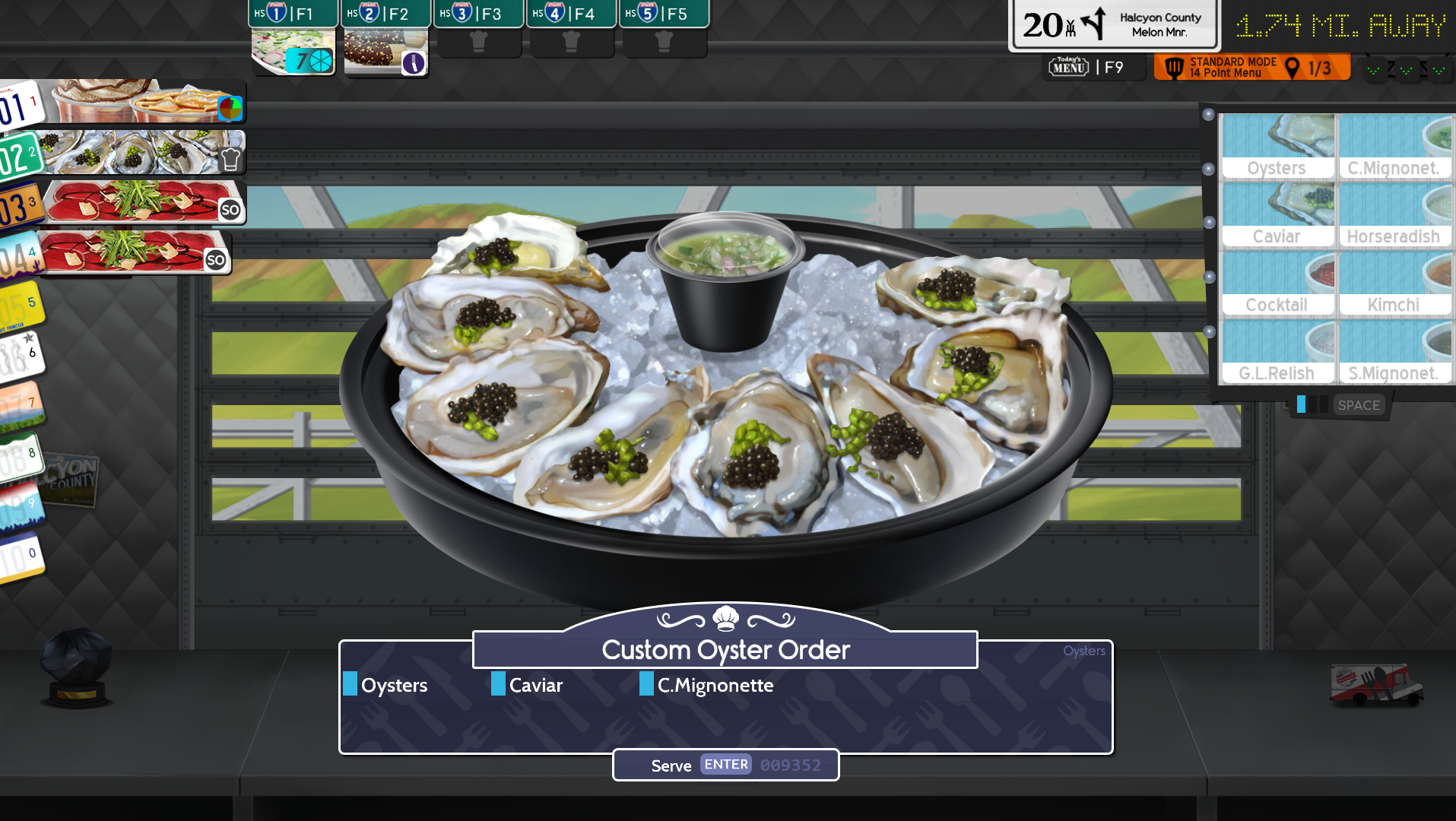
As you progress on your road trip, upgrade options for your truck open up. Extra prep stations mean you can accommodate more customers, earning you more cash per day but requiring more graft to keep up. Extra holding stations, meanwhile, help out by giving you more storage for pre-prepped foods, and heat lamps extend the freshness of those dishes.
Trust me, you need all the mod cons you can cram into the old banger. Each stop is a frantic whirlwind of activity, the panic growing along with the crowds baying for their lunch. It only takes one mis-hit key to ruin an entire holding station’s worth of food – and the patience of half a dozen hungry customers. If it all gets a bit too much, you’ve got the option at the start of each day to switch into ‘chilled’ mode, which gives you all the time you need to serve each customer.
The game doesn’t punish this overly harshly, either; the only penalty is that you’ll max out at a silver medal for that day. It’s a nice concession in what can at times be a fairly stressful play experience, although I did miss the added spice that comes with the pressure-cooker environment and ensuing adrenaline rush.
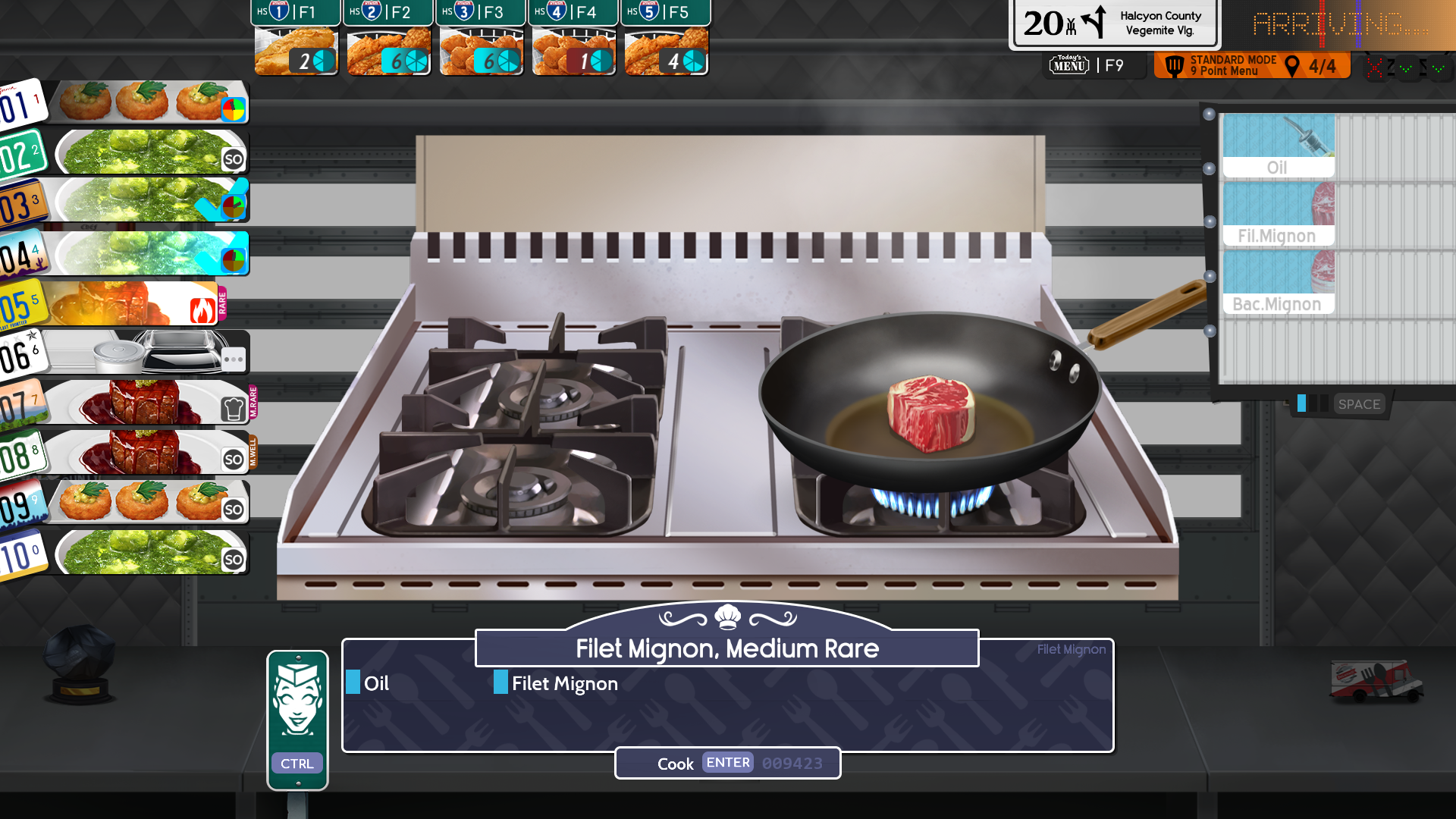
In the grand scheme of things, a silver medal is what you’ll often have to settle for regardless, due to CSD3’s fairly punishing difficulty. To get the gold, you’ll need nothing less than a fully perfect day, which can feel disheartening when you’ve served up 200 faultless plates and just one that was slightly under-sauced or over-seasoned.
Still, it’s testament to CSD3’s compelling nature that you’ll want to keep tinkering with your menu to find that perfectly optimised spread to let you nail it. With more than 200 foods from across the globe—from empanadas through to escargot, boiled eggs to bunny chow—at your fingertips, you’re certainly not short on potential permutations. As moreish as a tube of Pringles, this is as fun to play as a quick snack as it is a full banquet.
Read our review policy
Cook, Serve, Delicious! 3?! is as stressful and satisfying as searing the perfect sirloin.

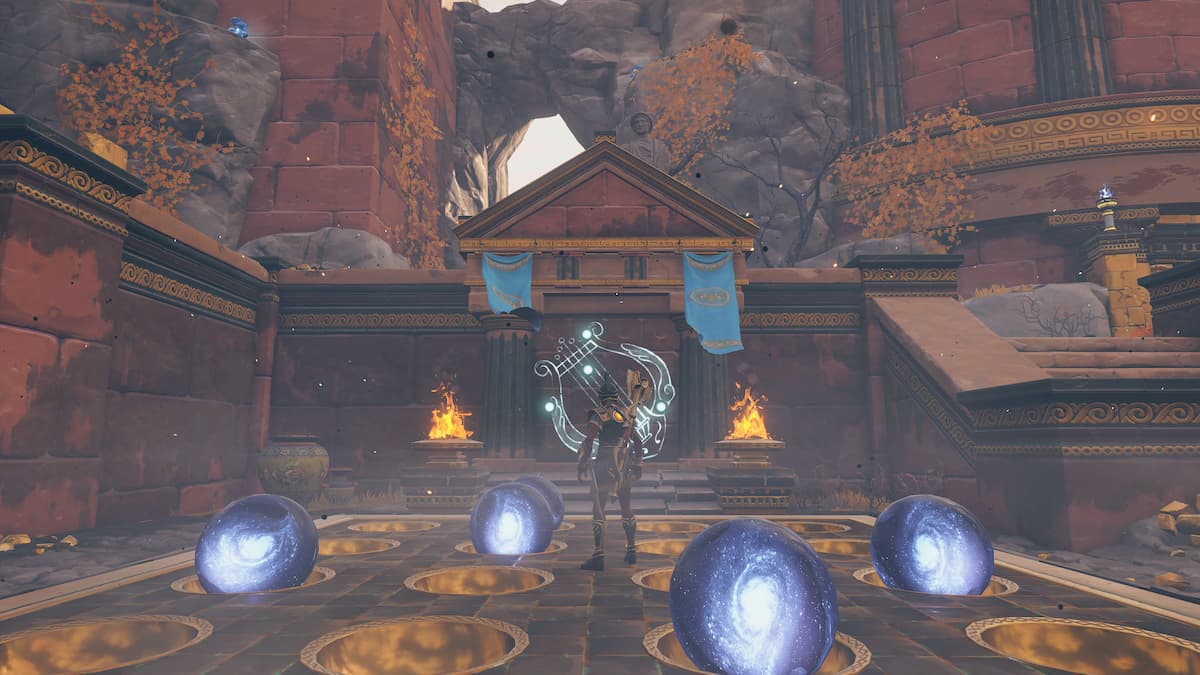
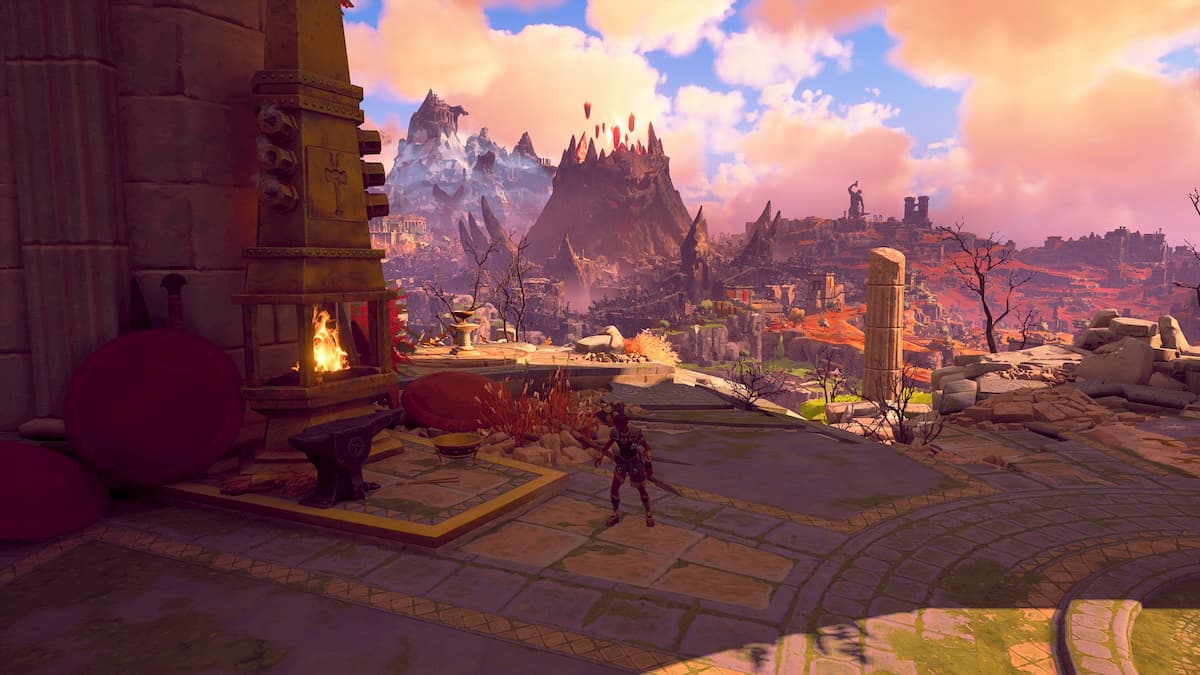

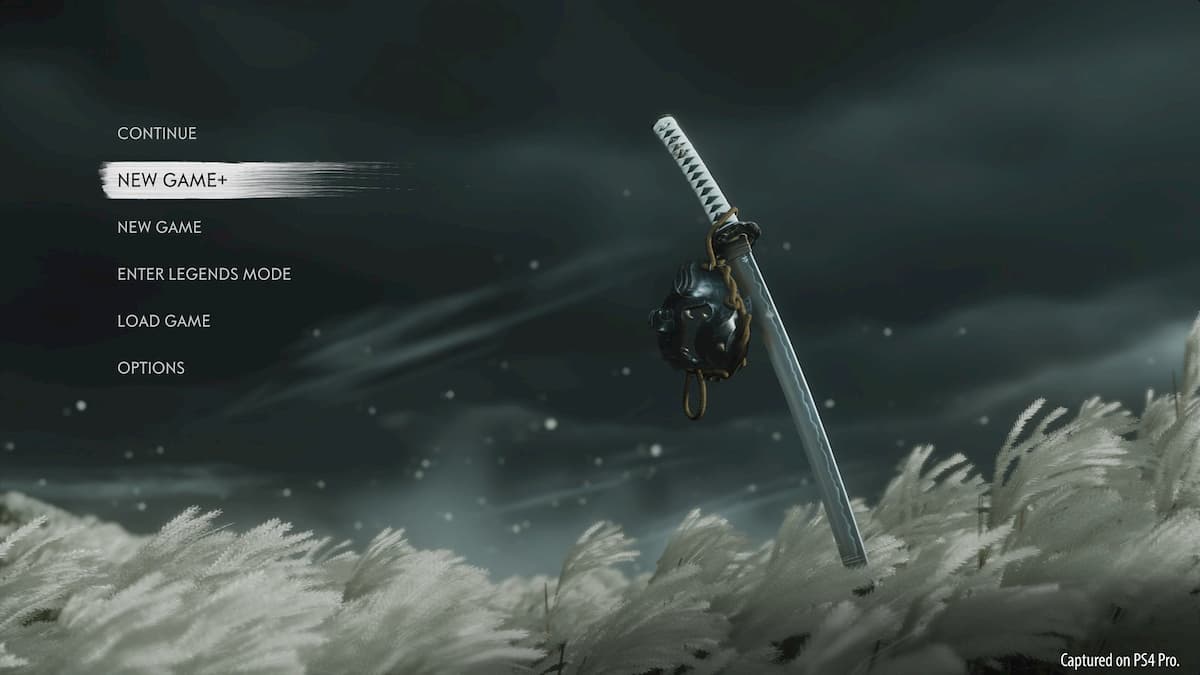


More Stories
Doom Eternal review
Review: The Last of Us Part II complicates the idea of right and wrong
Dirt 5 review